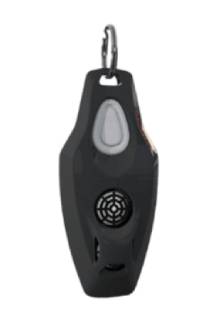Anti Ticks and Fleas



ZeroBugs™ is the innovative ultrasonic device that protects humans and pets from bites and stings from ticks and fleas
The arrival of spring and more favourable weather conditions are an incentive to spend more time outdoors, often in the company of our four-legged friends. However, rising temperatures also encourage the proliferation of ticks and fleas, which can transmit dangerous diseases to both humans and pets. It is therefore essential to implement careful prevention to reduce the risks of contact with these dangerous parasites.
ZeroBugs™ is an ultrasonic tick and flea detector designed to protect humans, dogs and cats without the use of potentially harmful chemicals.








